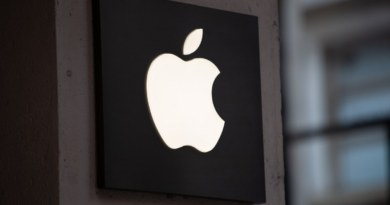Open Banking led to a FinTech boom — As Brite raises $60M, account-to-account payment grows
The move towards Open Banking payments, especially in the EU, effectively kicked-off the FinTech boom. Open Baking standards meant that FinTech startups could create Wallets and effectively become Banks, or at least “Neo Banks,” in practical day-today-terms.
Today, digital wallets are now the leading payment method globally in e-commerce, with a 49% share, according to the Global Payments Report by Worldpay. That said, so-called account-to-account (A2A) payments are on a streak, with the global A2A transaction value surpassing $525 billion in 2022, due to real-time payment rails now being available.
There’s been a growing number of startups now taking advantage of this A2A boom, among them Trustly out of Stockholm, which to date has raised €23 million.
However, they may now feel some heat from their other Stockholm-based neighbour, Brite Payments, which has today announced a Series A fund-raise of $60 million funding led by specialist B2B software investor Dawn Capital. Also joining the round was global VC Headline (the re-branded e.ventures) out of their European practice Headline and existing investor Incore (out of Sweden). Headline is made up of multiple seed and growth funds (in Europe, the US, Asia and Brazil) and in Europe it’s spread across Berlin, Paris, and London.
Prior to this round, Brite had raised seed cash from a smaller non-institutional investor Agof Investments which is run by Marcus Blom alongside Nicolai Chamizo (Brite Chairman and also Incore CEO).
Brite, which only launched in 2019 and was founded by former Klarna exec Lena Hackelöer, had something of a breakout year in 2022, claiming to have doubled its transaction volume and revenue, and reached profitability. It’s platform is now available in 25 countries across Europe, though not the UK (which is no longer an EU member).
It’s worth noting that Dawn Capital was an early backer of other Swedish fintech leaders such as iZettle (sold to PayPal for $2.2B) and Tink (acquired by Visa for $2.0B). Headline has previously backed Pismo, the Brazilian payments infrastructure provider (which exited to Visa for $1.0B).
In an interview, Hackelöer told me she thinks Brite’s payment platform is taking off “largely because we focus on instant account-to-account, and that means that we process the transactions between the consumer and ourselves, which really wasn’t the case before. If you look at the UK, you have the fast payment schemes, so that is a market that is of course very mature. But we don’t operate in the UK, we operate across most of Europe at this point, and there, instant is not yet the standard. So that is what differentiates us from first generation account-to-account players.”
A plethora of A2A payment platforms now exist, each with its own unique characteristics. In Brazil, the Central Bank developed PIX, while in Canada, Interac Online is an e-commerce payment service provided by Interac, a private collaboration between the leading Canadian banks. Furthermore, the National Payments Council of India and the Reserve Bank of India launched the Unified Payments Interface (UPI) in India in 2016.
Merchants are particular fans of A2A payment platforms because they reduce the cost of payment acceptance compared with credit cards, while offering instant settlement of funds. The trrend appears to be that consumers are also gradually switching away from credit cards to newer alternatives such as direct credit card use, digital wallets, BNPL (buy now, pay later) and other point-of-sale financing options. Crypto remains a minor payment method. With more A2A payment schemes available than ever before, it looks like this trend will only continue.
Josh Bell, General Partner, Dawn Capital, added in a statement: “We are on the cusp of open banking 2.0. The prospect of real-time account-to-account payments becoming mainstream across Europe is on the horizon, and Brite stands to be the category leader.”
Certainly, this this round of funding, Brite is well placed to use its war chest to either scale up, or potentially enter into some M&A deals with other players.




